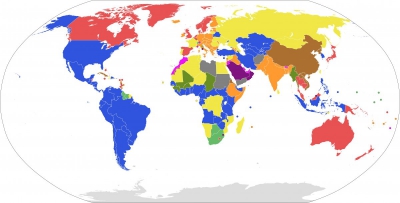Hastings Kamuzu Banda (c. 1898 25 November 1997) was the prime minister and later president of Malawi from 1964 to 1994 (for the first year of his rule as it achieved independence in 1964, Malawi was the British protectorate of Nyasaland). In 1966, the country became a republic and he became president. His rule has been characterized as a "highly repressive autocracy."After receiving much of his education in ethnography, linguistics, history, and medicine overseas, Banda returned to Nyasaland to speak against colonialism and advocate independence from the United Kingdom. He was formally appointed Prime Minister of Nyasaland, and led the country to independence in 1964. Two years later, he proclaimed Malawi a republic with himself as president. He consolidated power and later declared Malawi a one-party state under the Malawi Congress Party (MCP). In 1970, the MCP made him the party's President for Life. In 1971, he became President for Life of Malawi itself.
A renowned anti-communist leader in Africa, he received support from the Western Bloc during the Cold War. He generally supported women's rights, improved the country's infrastructure and maintained a good educational system relative to other African countries. However, he presided over one of the most repressive regimes in Africa, an era that saw political opponents regularly tortured and murdered. Human rights groups estimate that at least 6,000 people were killed, tortured and jailed without trial. As many as 18,000 people were killed during his rule, according to one estimate. He received criticism for maintaining full diplomatic relations with the apartheid government in South Africa.
By 1993, amid increasing domestic and international pressure, he agreed to hold a referendum which ended the one-party system. Soon afterwards, a special assembly ended his life-term presidency and stripped him of most of his powers. Banda ran for president in the democratic elections that followed and he was defeated. He died in South Africa on 25 November 1997.
A republic (from Latin res publica 'public affair') is a form of government in which "supreme power is held by the people and their elected representatives". In republics, the country is considered a "public matter", not the private concern or property of the rulers. The primary positions of power within a republic are attained through democracy or a mix of democracy with oligarchy or autocracy rather than being unalterably occupied by any given family lineage or group. With modern republicanism, it has become the opposing form of government to a monarchy and therefore a modern republic has no monarch as head of state.As of 2017, 159 of the world's 206 sovereign states use the word "republic" as part of their official names. Not all of these are republics in the sense of having elected governments, nor is the word "republic" used in the names of all states with elected governments.
The word republic comes from the Latin term res publica, which literally means "public thing", "public matter", or "public affair" and was used to refer to the state as a whole. The term developed its modern meaning in reference to the constitution of the ancient Roman Republic, lasting from the overthrow of the kings in 509 BC to the establishment of the Empire in 27 BC. This constitution was characterized by a Senate composed of wealthy aristocrats wielding significant influence; several popular assemblies of all free citizens, possessing the power to elect magistrates and pass laws; and a series of magistracies with varying types of civil and political authority.
Most often a republic is a single sovereign state, but there are also sub-sovereign state entities that are referred to as republics, or that have governments that are described as republican in nature. For instance, the United States Constitution "guarantee[s] to every State in this Union a Republican form of Government". Another example was the Soviet Union, described by its undemocratic and extremely centralised government as being a federation of voluntarily united "Soviet socialist republics" with equal rights and ostensibly high degree of internal autonomy. The Russian Federation is similarly a state that is composed partly of several "republics".

1966Jul, 6
Malawi becomes a republic, with Hastings Banda as its first President.
Choose Another Date
Events on 1966
- 10Mar
Buddhist Uprising
Military Prime Minister of South Vietnam Nguyễn Cao Kỳ sacked rival General Nguyễn Chánh Thi, precipitating large-scale civil and military dissension in parts of the nation. - 6Jul
Hastings Banda
Malawi becomes a republic, with Hastings Banda as its first President. - 10Jul
Martin Luther King, Jr.
The Chicago Freedom Movement, led by Martin Luther King, Jr., holds a rally at Soldier Field in Chicago. As many as 60,000 people attend. - 14Oct
Montreal Metro
The city of Montreal begins the operation of its underground Montreal Metro rapid transit system. - 8Nov
Reconstruction Era
Former Massachusetts Attorney General Edward Brooke becomes the first African American elected to the United States Senate since Reconstruction.

 English
English  español
español  français
français  português
português  русский
русский  العربية
العربية  简体中文
简体中文 